- Find a tutor

- Uncategorized
- September 26, 2021

IB English, the HL Essay: All You Need to Know

Written By Our IB++Tutor Birgitte J.
What You Need to Know
- The HL Essay is a 1200-1500 word formal essay and it is based on a literary work studied as part of the course. You cannot use the same work for the IO or the Paper 2 [1] for this essay.
- In the IB Language and Literature course [2] , the essay can also be based on a non-literary or collection of non literary text(s).
- You develop a line of inquiry , a question that lends itself to an argument focused on how a theme or message is conveyed through literary features.
- The essay is completed in your own time and you should get some feedback from your teacher during the development of the essay.
- You do not have to incorporate secondary sources beyond the text you are working with.

The paper is externally assessed, meaning the final grade given is from the IB Examiner, not from your teacher. However, your teacher will give a predicted grade that is sent to the IB [3] .
How to Approach the Essay
The essay requires you to construct a focused, analytical argument, examining the work from a broad literary or linguistic perspective. It also requires you to adhere to the formal framework of an academic essay, using citations and references.
Connection to the Learner Portfolio
The HL essay is based on the exploration you have engaged with in the Learner Portfolio [4] . In the lead-up to the drafting of the essay, you must decide which text to focus on for further investigation, and which topic to write about. In choosing the topic, you can consult the course’s seven central concepts. You can choose any text with the exception of the texts used for the Internal Assessment (the IO) or the Paper 2.
How to choose a text
Don’t wait until the last minute and talk with your teacher about the text you want to use and the focus you are considering. Write your ideas out to make sure your line of inquiry is focused and appropriate for an analytical argument of a paper of this length.
In the case of a collection of short stories, poems, song lyrics or any short literary text, you may choose to use just one literary text from the work. However, It may be necessary to use more than one literary text from the work chosen.
The Language and Literature course only *
In the case of short non-literary texts, it may be necessary to use more than one from the same text type by the same author, for example the same creative advertising agency, cartoonist, photographer or social media user. At least one of these texts must have been studied in class. (If using a text in translation it must be a professional and published translation).
Determining the Topic and the 7 Course Concepts
It’s helpful but not mandatory to start with the seven central concepts of the course in generating or determining a topic for the essay. The questions below are meant as starting points for the focus of the essay, not as complete lines of inquiry which should be more specific to the chosen text (see examples of lines of inquiry below).
Questions may include; How is identity represented in the text? How are the characters in the text representative of a group? How does the text reflect the identity of the writer?
Questions may include; How is an aspect of the text representative of a culture or a particular place? How is a group of people or an institution conveyed? How is the text representative of a cultural perspective?
3-Creativity
Questions may include; How is the text representative of an individual or collective creativity, or lack of creativity? How is the text a reflection of the creativity of the writer?
4-Communication
How is communication or lack of communication conveyed in the text? How does the text itself communicate with the reader? How are aspects of communication illustrated through literary features?
5-Transformation
How is change or development illustrated in the text? How are characters transformed through action, communication or events in the text? What is the relationship between transformation and the goals, values and beliefs conveyed in the text?
6-Perspective
How is a perspective or different perspectives represented in the text? How is a shift in perspective portrayed? How is the writer’s perspective revealed through the text?
7-Representation
How does the text represent a particular theme or message? How are attitudes conveyed? In what way is reality or the world within the text represented?
IB English Language and Literature Guide examples of lines of inquiry
- Identity —how does Ralph Ellison, in his novel Invisible Man, succeed in making his narrator a convincing spokesperson for the concerns of African-Americans in the 20th century?
- Culture —how does Robert Capa represent post-Second World War France to qualify/exemplify the brutalities of the French population on former Nazi collaborators in La Femme Tondue? (Language A: language and literature only)
- Creativity —how do Mario Testino’s portraits manage to convey the personalities of those portrayed in original ways? (Language A: language and literature only)
- Communication– which view of love does Matt Groening convey in Love is Hell? (Language A: language and literature only)
- Transformation– in what ways does The Alan Parsons Project’s Tales of Mystery and Imagination offer a transformative re-reading of Edgar Allan Poe’s tales?
- Perspective– how does Mary Shelley’s protagonist in Frankenstein use the motif of dangerous knowledge to show the perspective of fear and anxiety of excesses in scientific enterprise in early 19th century Europe?
- Representation– through what means does Juan Rulfo successfully convey the representation of realistic and non-realistic characters and situations in Pedro Páramo?
A Final Note on the Learner Portfolio and the HL Essay
The Learner Portfolio is not assessed but schools are required to keep it on file. It is intended to be a platform for reflecting on the texts studied, facilitating development of independent thinking. The reflections may include responses to cultural perspectives and values, inter-relationships and identities as it relates to topics and themes in the texts studied. The reflections may serve as a springboard for the line of inquiry in the HL essay. For example, you may keep a record of themes present, reflections on how particular passages within the texts reflect those themes, or how themes and passages convey one of the 7 central concepts.
[1] Paper 2 is cancelled for the 2022 cohort. No announcement has been made for the 2023 at the time this article was written.
[2] There are 3 IB English courses. The two most common are IB English A: Literature SL/HL, a course focused on literature (Poetry, drama, short stories and novels) and the IB English Language and Literature SL/HL course, focused on literature AND a variety of non-literary (non-fiction) text types.
[3] The examiner’s grade is independent from your teacher’s predicted grade.
[4] An individual collection of student work compiled during the course in which you explore and reflect on the texts throughout the course.
- About the IB
- Exam pattern
- Extended Essay
- IB Languages
- IB Subjects
- IB Success Tips
- Internal Assessment (IA)
- Online learning
- Predicted Grades
RECENT POSTS
- Top group study methods to make the most out of your time April 5, 2024
- Top IB Exam Preparation Techniques for Success March 30, 2024
- How to Navigate Post-Mock Challenges February 13, 2024
- Affordable Tutoring Options for IB Students February 12, 2024
- Top 10 Reasons to Opt for the IB Diploma January 10, 2024
Find me a tutor.
Please take one minute to fill in the form to tell us about your tuition needs. Once completed, one of our dedicated team members will reach out to you to fully understand your needs and find the best-match tutor. Our service is risk-free with our 100% money-back guarantee policy in the unlikely event that you are not satisfied with your matched ++tutor.

IB ++tutors is a Canadian company that is committed to providing global, high-quality IB private tutoring services by IB expert tutors.
Get Started
- How it works
- Free Lesson per Friend
- Affiliate Program
- Become a tutor
- IB School Support
- Privacy Policy
- Terms of Use
- Toll-Free Support (US & CA): 1-833-611-1133
- Global Support: +1-833-611-1133 (charges may apply)
- [email protected]
- 407 Iroquois Shore Rd. Unit 8, Suite V4 Oakville, Ontario, Canada L6H 1M3

English Collaborative
IB English A Language and Literature: HL Essay Assessment Considerations
Please note: The purpose of this information is to elaborate on the nature of the IB assessment task, define and explain the assessment criteria and their implications, share observed challenges in students’ submitted assessment work, and offer strategies and approaches for assessment preparation.
This post is not meant to replace a reading of the IB Language A Subject Guides or the Teacher Support Materials available on MYIB. Those resources should always be a first stop for teachers when checking the requirements of each assessment task and how the task should be facilitated.
HL Essay Overview
Nature of the task.
- Students are asked to develop a line of inquiry of their choice in connection with a work or body of work studied in the course.
- In this context, teachers serve as advisors. The HL essay is an opportunity for students “to develop as independent, critical and creative readers, thinkers and writers” [1] which suggests there should be some degree of autonomy in choosing a work or body of work and determining the line of inquiry.
- The final essay is a focused argument critically examining a broad literary or linguistic perspective in one of the works or bodies of work studied in the course. The focus of the critical examination should be appropriate for the discipline; while there may be some overlap with other disciplines (e.g., art or film), teachers will need to use their professional judgement to evaluate appropriate boundaries for the line of inquiry [2] .
- The essay should be developed “over an extended period of time” [3] . Adequate time should be given for students to refine their ideas, plan their arguments, draft, and revise their essays. Teachers are expected to play an active role guiding and facilitating this process.
- The essay is formal and should adhere to the conventions of an academic essay in its structure and use of citations.
- In the marking of the assessment task, there is equal quantitative value placed on the ideas presented in the essay (10 marks) and the essay’s organization and use of language (10 marks). Maximum: 20 marks. [4]
- The final essay produced for submission needs to be 1200-1500 words in length. Examiners will not read more than 1500 words. [5]
Explanation of the task
- It is important that students develop a line of inquiry that is focused, analytical, and (when relevant) literary before they begin researching and writing. Students do not need to name literary or textual features in their question; however, the question should lend itself to an analytical investigation of the work that is appropriate for the discipline.
- The seven course concepts (identity, culture, creativity, communication, transformation, perspective, and representation) may serve as a starting point when developing a line of inquiry. [6]
- The discussion, ideas, and inspiration for the HL Essay will ideally come from the student’s Learner Portfolio. Students may expand on an idea, activity, or smaller-scale assessment explored in class as inspiration for selecting a topic and developing a line of inquiry. Students may also explore their own, self-generated lines of inquiry.
- Each student’s line of inquiry should develop from their own work or ideas about the work. Ideally, the learner portfolio will document this evolution (in some form).
Selection of work
- Students base their essays on one work or body of work studied in the course. Students may choose any work or body of work, except for the works/body of work used for the Individual Oral or the works chosen for the Paper 2 exam.
- Students should consult with their teachers when selecting a text, work, or body of work to ensure the material is rich enough to support a focused, analytical argument of this length.
- Documentaries and full features films are full, non-literary “works” and are acceptable material on which to base a line of inquiry for the HL Essay.
- Literary bodies of work include collections of short stories, poetry, essays, graphic narratives, etc.
- Non-literary bodies of work may include an advertising campaign, a journalist’s published articles or editorials, a photojournalist’s series of photographs, related public service announcements or campaigns, research and relevant publications by an organization (such as Human Rights Watch), a series of texts or shows by an interviewer, commentator or satirist, a podcast series, an editorial cartoonist’s publications, etc. [7]
- The texts in the body of work must share authorship. This means the texts are written or produced by a single author or are written and produced by collaborators that share a single authorship (such as an advertising agency, corporation, non-profit organization, television show, writer and graphic illustrator, etc.) [8]
- Students may base their essay on one text in a body of work (e.g., one short story in a collection), however students need to be careful to sustain a “broad literary [or linguistic] investigation” as opposed to a close reading or commentary. They are expected to make explicit connections in the essay between the text and the author’s body of work. [9]
- In most cases, it will be appropriate for a student to reference at least 2-3 texts in an author’s body of work.
- Students may explore and use any texts from an author studied in class, even if the specific texts were not part of the course study. This might be appropriate if the student’s specific literary investigation cannot be supported with the specific texts studied but could be supported with other texts by the author. [10]
Determining the topic (and line of inquiry)
- The essay needs to be focused on a broad literary or linguistic investigation that addresses a concept developed in the work or body of work.
- Students who struggle to identify a suitable concept can use one of the seven course concepts as a starting place to develop their line of inquiry (e.g., What does the work communicate about…? In what ways does the work transform our perspective on…? To what extent does the work represent…? )
- Students should be encouraged to explore a concept that is significant to them and their reading of the work.
- Teachers can advise and coach students through the process of selecting a topic and developing a line of inquiry, but teachers are not supposed to assign topics (or works) to students. [11]
What is the HL Essay Assessing?
Criterion a: knowledge, understanding, and interpretation (5 marks), defined terms.
- Students need a clear, cohesive thesis statement in the introduction of the essay that states the conclusions the student has drawn in response to the line of inquiry. The “conclusions” are the student’s central argument for the essay.
- Students need to understand the difference between demonstrating understanding of a work and offering interpretations of the work’s meanings. An essay must offer interpretations of the work’s implications to score at least a “satisfactory” mark in Criterion A.
- Good to excellent knowledge and understanding comes from knowing the works very well which usually requires multiple readings . Clear references, explanations, and detailed analysis in support of asserted interpretations are a more effective demonstration of knowledge and understanding than summary.
- When analyzing texts from a “body of work”, students are expected to make claims and connections to the body of work. If the focus of the essay is on an individual text (such as a short story or poem), it is important that the analysis be treated as a “broad literary [or linguistic] investigation”. Teachers will need to evaluate the extent to which this is possible for each individual text. It may be helpful for teachers and students to consult articles in scholarly journals to see examples of how a broad literary investigation can be approached with a shorter, individual text.
Activities and protocols that develop skills related to knowledge, understanding, and interpretation.

Formulating Interpretive Statements
This activity scaffolds the process of developing an “interpretive statement” in response to a text or work. This is achieved through a sentence completion exercise […]
Continue Reading

Concept Formation
In this activity, students use small examples to establish what a concept is (and is not). This inductive strategy works to give depth, ownership, and […]

Critical Lenses
Critical lenses help students engage with different perspectives with which to approach the reading and interpretation of a work. Each lens contains questions that provoke […]

Journal Writing
Journal writing helps students develop important thinking skills. There are the traditional approaches used in the younger years, like imagining a minor character’s point of […]
Criterion B: Analysis and evaluation (5 marks)
- This criterion asks students to critically analyze, evaluate, and compare how meaning is constructed and communicated in a work or body of work.
- The discussion, analysis, and evaluation of literary or linguistic features must work to develop the line in inquiry and central argument for the essay. This is a common shortcoming in student essays.
- The interrelationships of authorial choices and their effects may be complex, which requires thoughtful organization in the planning stage of the essay.
- Assertions that make judgements about a writer’s competency or simply state a preference for an author or style are not literary evaluations.
- An insightful literary analysis usually includes an appreciation of form-specific features.
Activities and protocols that develop skills related to analysis and evaluation

Why might this detail matter?
This activity gets students to think about the significance of minor details in a work. These details can be used as evidence to form the […]

Ladder of Abstraction
This activity allows students to process the ways in which details from a work might represent larger abstract ideas. Process Divide students in groups of […]

Appoint a Devil’s Advocate
This protocol invites divergent thinking in a group and works to facilitate a culture where different ideas are viewed as collaborative rather than combative. Preparation […]

This activity helps students visually see and appreciate the ways in which parts make up a whole. One of the challenges many students have is […]
Criterion C: Focus, organization, and development (5 marks)
- The line of inquiry (which includes the topic) should be clearly stated either as the title or in the introductory paragraph of the essay.
- The thesis (or argument) for the essay should be clearly communicated in the introductory paragraph.
- Effective organization helps students maintain focus, achieve cohesion, and develop claims. This means considering the most effective way to present the argument and its supporting evidence and analysis (chronologically, most persuasive evidence first, by sub-topic, cause and effect relationships, first impressions vs. later reflections, claims and counter claims, etc.).
- Each paragraph should be a point of development that supports the conclusions drawn from the line of inquiry (i.e., the essay’s central argument). The nature of the argument and the substance of the analysis should determine the number of paragraphs, their length, and their order. Forcing an argument into a formulaic essay structure can be limiting.
- Purposeful transitions create cohesion and logically take the reader through the essay’s evidence-based claims.
- Essays organized by authorial choices tend to be limiting because they struggle to appreciate the interdependency of features’ effects.
- One citation method should be sustained throughout the essay.
Activities and protocols that develop skills related to organization and development
Generate, Sort, Connect, Elaborate: Concept Mapping IDEAS in a Work
This activity asks students to individually identify ideas and issues developed in a work and collaboratively connect and develop one another’s ideas. This ultimately helps […]

Making a Précis
This activity guides students on how to distill a text into 100-200-word précis or summary. This is a helpful skill for preparing a passage response […]

This protocol helps students consider which ideas, issues, and feelings are playing a significant role in shaping their personal response to a work. Process Give […]

Sort Card Activity
This activity helps students organize information and identify conceptual trends. This activity models a process that students can use when planning their own essays and […]

Significant Quotes
Who said it? What is the context? and Why is this quote significant? may seem like an archaic exercise in today’s educational landscape, but the […]
Criterion D: Language (5 marks)
- A wider vocabulary and knowledge of sentence structures gives students more language tools to express abstract and complex thoughts.
- Correct use of terminology may be considered in awarding marks in this criterion; however, jargon is not the sole focus.
- When students use vocabulary and sentence structures that are comfortably in their repertoire, they usually express their thinking more clearly. When students stretch to use words or sentences structures with which they are not familiar, they risk miscommunication.
- An essay does not need to be flawless to earn top marks in this criterion, however the expectation for language to be clear, varied, and accurate is higher in this component. This is because students have an opportunity to revise their essays.
- Voice is welcomed in all IB assessment tasks: formal writing does not need to be turgid.
Activities and protocols that develop skills related to use of language

Interpretive Statement Wall
This protocol helps students develop revision skills by asking clarifying and critical questions about each other’s interpretive statements or thesis statements. This helps students develop […]

Evaluating Thesis Statements
This activity helps students understand the role language plays in communicating specific and complex ideas in a thesis statement. The approach invites active collaboration, and […]

Discussion Posts and Personalized Learning
This formative assessment gives students an opportunity to personalize their learning while engaging in collaborative discussion with their peers around their chosen text(s) or work. […]

This protocol helps students generate ideas in response to a work. Process Give students a writing task, asking them to identify one thing they think […]
[1] Language A: Language and Literature Guide, First assessment 2021 , IBO: 2019. pp. 42.
[2] To gain an understanding or confidence in evaluating analysis that is “appropriate for the discipline”, teachers may want to invest some time perusing scholarly articles written on works they teach or are familiar with using a database such as JSTOR or Ebscohost. These titles and articles an also be shared with students as guides and exemplars.
[4] Ibid, pp. 45.
[5] Ibid, p. 42.
[6] Ibid, p. 43.
[7] A list of text types can be found on p. 22 of the Language A: Language and Literature Guide. As mentioned in the guide, the list is not exhaustive.
[8] “Selection of work”. Language A: Language and Literature Guide, First assessment 2021 , IBO: 2019, p. 43.
[11] Language A: Language and Literature Guide, First assessment 2021 , IBO: 2019. p. 44.
[12] Definition: a short statement of the main points.
Photo by Marcel Friedrich on Unsplash
2 thoughts on “ IB English A Language and Literature: HL Essay Assessment Considerations ”
Thank you for this resource.
You’re welcome! If you see something that should be added, please let us know!
Leave a Reply Cancel reply
You must be logged in to post a comment.
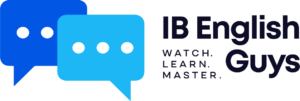
Higher Level Essay
Whether you are an HL Literature student or HL Lang/Lit student, the HLE requires some special attention. The good thing about this assessment is that it’s a processed – rather than on-demand – piece of writing. This means you can take your time, put in the work, and produce something that you love and makes you proud. Our students crush this assessment! Use the same resources they do and enjoy your success.
HLE Writing Guide
Writing this assessment doesn’t have to be challenging. In fact, we think it can be fun and rewarding! Let us guide you through the entire writing process, from line of inquiry to the last word of your conclusion. Our students do well on this assessment, and so can you.

Part of our IBDP English A Student Toolkit , this resource includes:
- 100-page course book with guidance on films, photos, cartoons, and many other non-literary BOWs
- 5 sample papers across genres
- Examiner scores and comments
- Line of Inquiry guidance
- Step-by-step approach to building the HLE in small and manageable chunks
- Complete set of graphic organizers to guide students from start to finish
Developing a Line of Inquiry and Thesis
The Line of Inquiry (LOI) and thesis are the cornerstone of the assessment, so don’t proceed until these are under control. Sadly, many students get off to a poor start with this step, and this means they end up writing either a shallow essay or one that doesn’t really satisfy the requirements of the task. These videos should help you unlock the task.
Start with a text you love and work toward developing a literary or linguistic perspective. Watch this video and start your pathway to success.
How To Write the Line of Inquiry
If the first method didn't work for you, please try another approach.
How to Write the Line of Inquiry (part 2)
Turn that LoI into a clear, precise, and insightful thesis statement that will drive the essay.
HLE Sample Thesis Statements and Writing
The HLE Complete Course from Start to Finish
We feel this is some of our best work. Teachers and students around the world have commented that this HLE series gets the job done and results in some powerful writing that makes students proud. Please take the time and work through the videos sequentially. Work along side with us. Let us guide you to HLE success!
Choose your text and write the LOI.
Student planning doc
Model Student planning doc
Time for brainstorming and outlining.
Student Organizer
Completed Sample Organizer
Master the intro and conclusion.
Sample Intro and Conclusion
Learn how to write strong HLE body paragraphs.
Sample Body Paragraphs
Learn to revise, edit, and polish the final product.
Final instructions before submission
Dave’s complete sample HLE
Some Sample Papers
Sometimes it’s easier to just look at a final product, break it down, and see how other students have approached the HLE. That’s why Dave and Andrew selected some strong papers, highlighted them, and discussed their strengths and weaknesses. We’ve examined tons of these things, so listen carefully. Lots of tips and tricks in these videos to help you pick up some extra points and crack into that mark band you want and deserve. Understand the task. Work hard. Defeat the HLE and allow yourself to beam with pride. Go ahead, you’ve earned it.
You’ve probably noticed that Andrew and Dave love drama. Dialogue, stage directions, props…they’re amazing! Watch our student crush this HLE on Death and the Maiden by Dorfman. What can you steal from this essay in terms of ideas, organization, and overall approach? Document: HLE Student Sample – Drama
Poetry anyone? Andrew and Dave love poetry for the HLE. They are complete “mini works” with a clear beginning, middle, and end. They are rich in techniques. They are complex and have deep meaning. In short, they rock. Just remember that for the HLE, “short texts need friends.” Document: HLE Student Sample – Poetry
Looking For More Support?
Hey, nobody said this thing would be easy. No worries. We’ve got you covered. Perhaps you want to see some more student writing? Check. We’ve got that. Perhaps you want to know some key points to include? Check. We got that too. You’re almost there! Finish these last two videos, add some finishing touches to your work, and submit that baby in with pride and confidence.
So you watched the videos above but are still concerned about “showing deep thinking” on the HLE? It’s ok – we know this is tough. Check out this video to see several samples of how to build big thinking into your writing. Document: Showing Deep Thinking in the HLE
We know, we know. The content is overwhelming and it’s just too much at times. You just want the top ten tips for success? Fine. Here you go. But don’t forget to go back and watch the rest of these videos when you’re feeling more energy. They’re a set. Watch them all and ace the HLE.
IB English Guys
Newsletter signup.

Choose Your Test
Sat / act prep online guides and tips, the best ib english study guide and notes for sl/hl.
International Baccalaureate (IB)

Are you taking IB English and need some help with your studying? No need to reread all the books and poems you covered in class! This study guide is for IB English A students (students in IB English A: literature SL/HL, IB English A: language and literature SL/HL, or IB English literature and performance SL ) who are looking for additional guidance on writing their commentaries or essays.
I've compiled this IB English study guide using the best free materials available for this class. Use it to supplement your classwork and help you prepare for exams throughout the school year.
What's Tested on the IB English Exams?
The IB English courses are unique from other IB classes in that they don't have a very rigid curriculum with exact topics to cover. Instead, your class (or most likely your teacher) is given the freedom to choose what works (from a list of prescribed authors and a list of prescribed literature in translation from IBO) to teach. The exams reflect that freedom.
On the exam for all English A courses, you're asked to write essays that incorporate examples from novels, poems, plays, and other texts you've read. You're also asked to interpret a text that you've read for the first time the day of the exam.
The exact number of questions you'll have to answer varies by the course , but the types of questions asked on each all fall into the two categories listed above.

What's Offered in This Guide?
In this guide, I have compiled materials to help teach you how to interpret poetry and how to structure your essay/commentary. I've also provided notes on several books typically taught in IB English SL/HL.
This should be most of the material you need to study for your IB exam and to study for your in-class exams.
How to Interpret Poetry Guides
Many people struggle the most with the poetry material, and if you're one of those people, we have some resources specifically for making poetry questions easier.
Here is a full explanation of how to interpret poetry for the IB exam with term definitions, descriptions of types of poems, and examples. We also have tons of poetry resources on our blog that range from explaining specific terms all the way to complete, expert analyses of poems you should know.
Here are some resources to get you started:
- Imagery defined
- Everything you need to know about Point of View
- The 20 poetic devices you should know
- Understanding allusion
- A crash course on Romantic poetry
- Understanding personification
- Famous sonnets, explained
- An expert guide to understanding rhyme and meter, including iambic pentameter
- The eight types of sonnets
- Expert analysis of "Do not go gentle into that good night" by Dylan Thomas
This is another great resource with poetry terms defined on "flashcards" , and you can test yourself on the site by clicking "play."
How to Write Your Essay Guide
If you're not sure how to write your essay, here's a guide to what your essay should look like for the IB English SL/HL papers. This guide gives advice on how you should structure your essay and what you should include in it. It also contains a few sample questions so you can get a better idea of the types of prompts you can expect to see.

IB English Book Notes
Based on the list of prescribed authors and literature from IBO, I picked some of the most popular books to teach and provided links to notes on those works. What's important to remember from these books is key moments, themes, motifs, and symbols, so you can discuss them on your in-class tests and the IB papers.
- Adventures of Huckleberry Finn
- A Farewell to Arms
- Animal Farm
- All the Pretty Horses
- A Streetcar Named Desire
- Anna Karenina
- As I Lay Dying
- Brave New World
- Crime and Punishment
- Death of a Salesman
- A Doll's House
- Don Quixote
- Dr. Zhivago
- Frankenstein
- Great Expectations
- Heart of Darkness
- Lord of the Flies
- Love in the Time of Cholera
- Love Medicine
- One Day in the Life of Ivan Denisovich
- Romeo & Juliet
- Sense and Sensibility
- The Awakening
- The Bluest Eye
- The Great Gatsby
- The Picture of Dorian Gray
- The Stranger
- The Sun Also Rises
- Waiting for Godot

The Best Study Practices for IB English
Hopefully, this guide will be an asset to you throughout the school year for in-class quizzes as well as at the end of the year for the IB exam. Taking practice tests is also important, and you should also look at our other article for access to FREE IB English past papers to help you familiarize yourself with the types of questions asked by the IBO (and I'm sure your teacher will ask similar questions on your quizzes).
Make sure you're reading all of the novels and poetry assigned to you in class, and take detailed notes on them. This will help you remember key themes and plot points so you don't find yourself needing to reread a pile of books right before the exam.
Finally, keep up with the material you learn in class, and don't fall behind. Reading several novels the week before the IB exam won't be much help. You need to have time and let the material sink in over the course of the class, so you're able to remember it easily on the day of the IB exam.
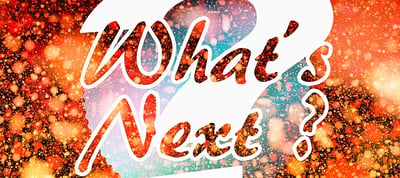
What's Next?
Want some more study materials for IB English? Our guide to IB English past papers has links to every free and official past IB English paper available!
Are you hoping to squeeze in some extra IB classes ? Learn about the IB courses offered online by reading our guide.
Not sure where you want to go to college? Check out our guide to finding your target school. Also, figure out your target SAT score or target ACT score .
Want to improve your SAT score by 160 points or your ACT score by 4 points? We've written a guide for each test about the top 5 strategies you must be using to have a shot at improving your score. Download it for free now:

As an SAT/ACT tutor, Dora has guided many students to test prep success. She loves watching students succeed and is committed to helping you get there. Dora received a full-tuition merit based scholarship to University of Southern California. She graduated magna cum laude and scored in the 99th percentile on the ACT. She is also passionate about acting, writing, and photography.
Student and Parent Forum
Our new student and parent forum, at ExpertHub.PrepScholar.com , allow you to interact with your peers and the PrepScholar staff. See how other students and parents are navigating high school, college, and the college admissions process. Ask questions; get answers.

Ask a Question Below
Have any questions about this article or other topics? Ask below and we'll reply!
Improve With Our Famous Guides
- For All Students
The 5 Strategies You Must Be Using to Improve 160+ SAT Points
How to Get a Perfect 1600, by a Perfect Scorer
Series: How to Get 800 on Each SAT Section:
Score 800 on SAT Math
Score 800 on SAT Reading
Score 800 on SAT Writing
Series: How to Get to 600 on Each SAT Section:
Score 600 on SAT Math
Score 600 on SAT Reading
Score 600 on SAT Writing
Free Complete Official SAT Practice Tests
What SAT Target Score Should You Be Aiming For?
15 Strategies to Improve Your SAT Essay
The 5 Strategies You Must Be Using to Improve 4+ ACT Points
How to Get a Perfect 36 ACT, by a Perfect Scorer
Series: How to Get 36 on Each ACT Section:
36 on ACT English
36 on ACT Math
36 on ACT Reading
36 on ACT Science
Series: How to Get to 24 on Each ACT Section:
24 on ACT English
24 on ACT Math
24 on ACT Reading
24 on ACT Science
What ACT target score should you be aiming for?
ACT Vocabulary You Must Know
ACT Writing: 15 Tips to Raise Your Essay Score
How to Get Into Harvard and the Ivy League
How to Get a Perfect 4.0 GPA
How to Write an Amazing College Essay
What Exactly Are Colleges Looking For?
Is the ACT easier than the SAT? A Comprehensive Guide
Should you retake your SAT or ACT?
When should you take the SAT or ACT?

Stay Informed
Get the latest articles and test prep tips!
Looking for Graduate School Test Prep?
Check out our top-rated graduate blogs here:
GRE Online Prep Blog
GMAT Online Prep Blog
TOEFL Online Prep Blog
Holly R. "I am absolutely overjoyed and cannot thank you enough for helping me!”
Prediction Exams and November 2023 Past Paper Solutions available now!
IB English Guys
IB English Guys videos are perfect companions for IB English A: Literature HL students. The videos meticulously outline the key strategies and techniques required to excel in each component of the IB English Lit exams. Find paper solution videos, tips and tricks to succeed, and valuable IO and HL essay planning resources. Whether you're a novice or a seasoned IB English student, these videos provide a valuable toolkit for achieving your academic goals.
Poetry - Close Reading
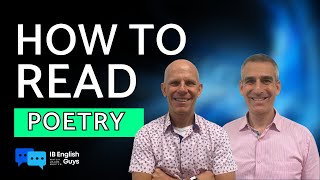
Poetry - Writing
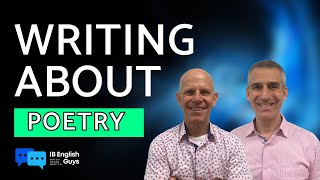
Poetry - Full Response
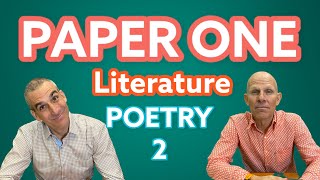
Prose Non-Fiction - Close Reading
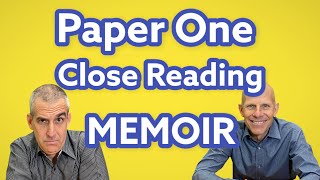
Prose Non-Fiction - Full Response
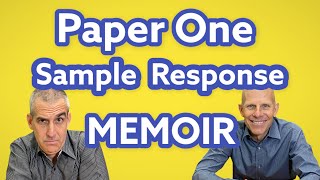
Prose Fiction - Close Reading
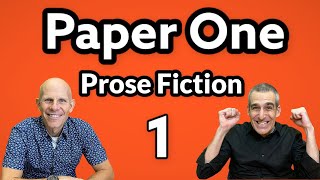
Drama - Close Reading
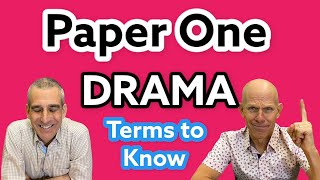
Prose Fiction - Full Response
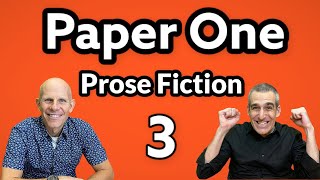
Literary Forms
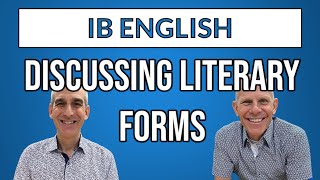
Details and Tips

Start to Finish - Nuts and Bolts
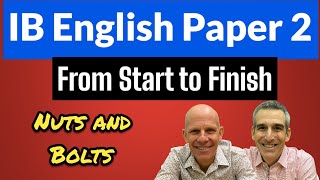
Start to Finish - Text 1
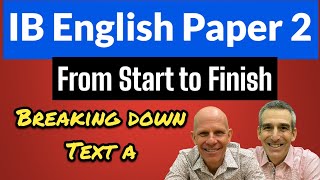
Start to Finish - Text 2
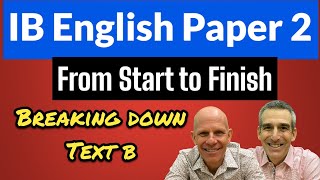
Start to Finish - Thesis and Outine
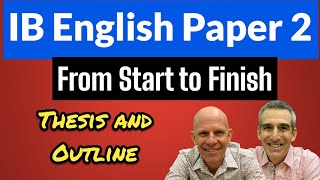
Start to Finish - Writing the Intro
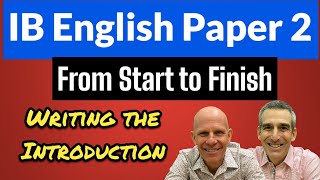
Start to Finish - Body Paragraphs
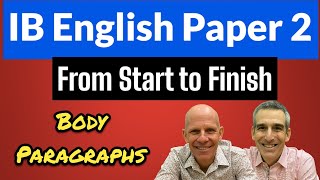
Start to Finish - The Conclusion
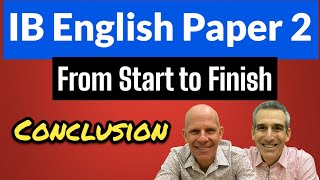
Start to Finish - Full Response
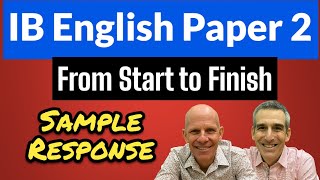
Breaking Down the Question
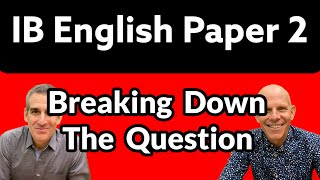
Brainstorming and Mindmapping
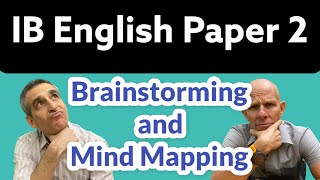
From Question to Thesis
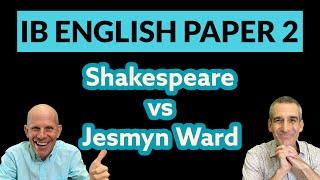
Thesis Statements
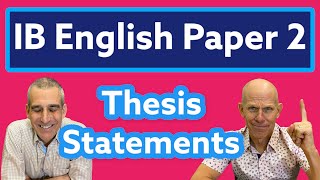
Structuring the Response
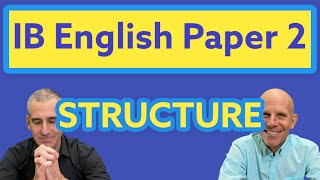
Writing the Introduction
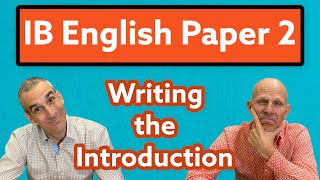
Writing the Introduction 2.0
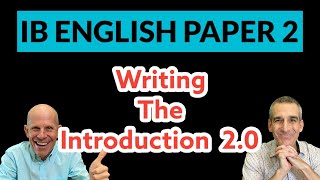
Writing Body Paragraphs
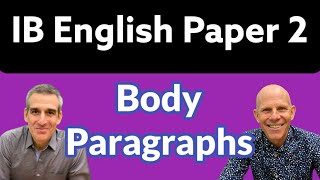
Writing Body Paragraphs 2.0
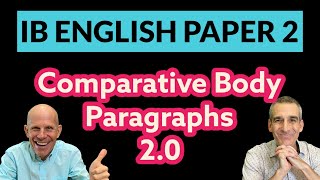
Writing the Conclusion
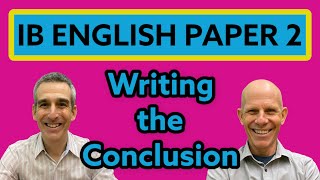
Sample Response
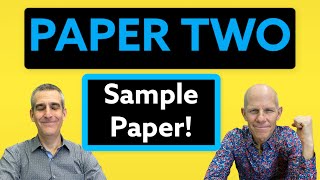
"Spitballing" Questions
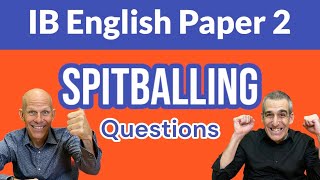
Individual Oral
2024 Update - The Process at a Glance
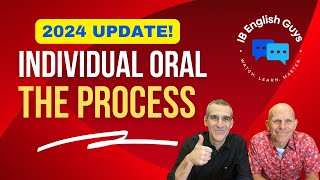
2024 Update - Global Issue Reboot
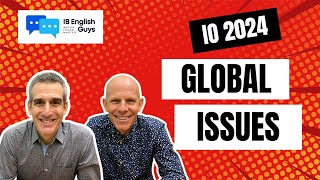
2024 Update - From Topic to Global Issue

2024 Update - Annotating the Extract
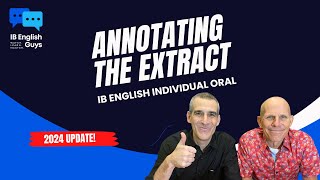
2024 Update - Nail the Intro
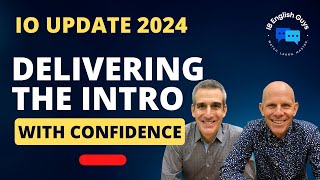
Examiner's Reflection
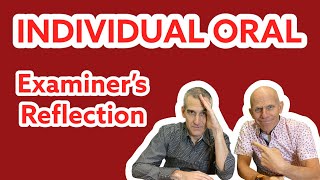
Global Issue Workshop
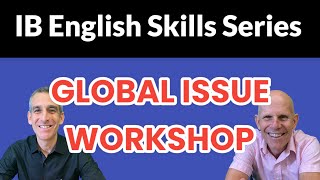
Five Essential Ingredients
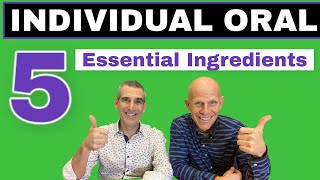
Essential Information
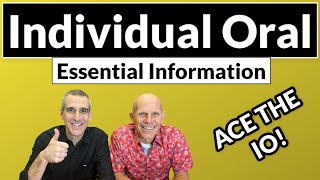
What it is, What is isn't
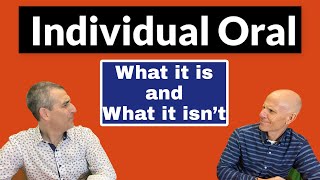
Unpacking the Criteria
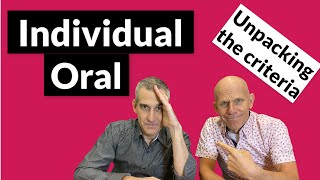
Delivering the Intro
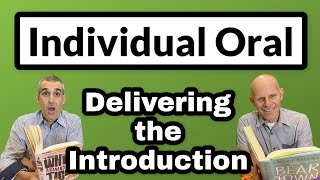
Discussing the Extract
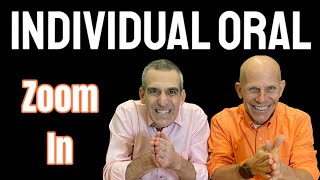
Discussing the Work or BoW as a Whole
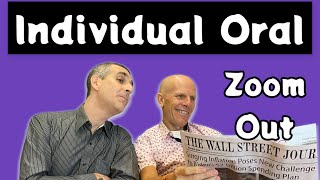
The Conclusion
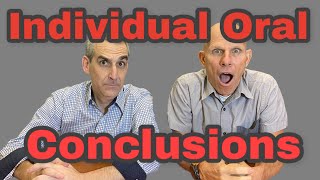
Speaking with Confidence
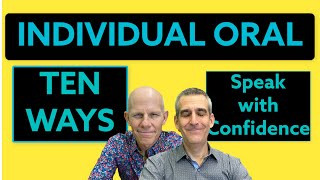
Choosing the Right Extract

Transitions and Signposting
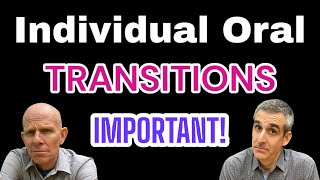
The Outline
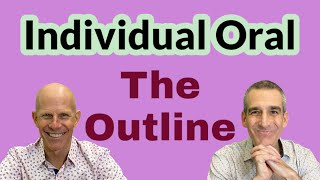
Higher Level Essay
Start to Finish - 1
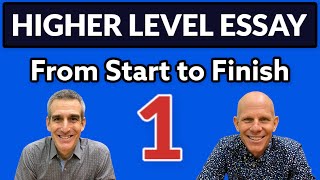
Start to Finish - 2
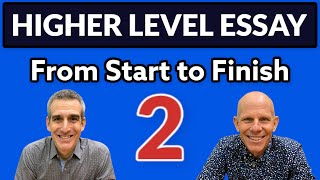
Start to Finish - 3
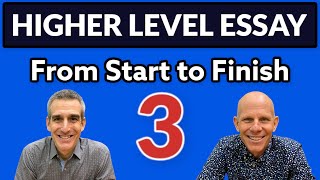
Start to Finish - 4
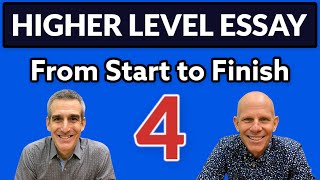
Start to Finish - 5
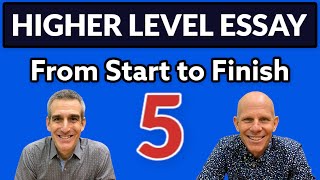
The Line of Inquiry 1.0
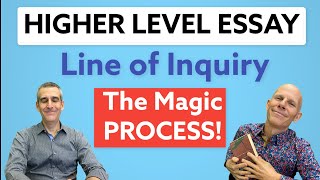
The Line of Inquiry 2.0
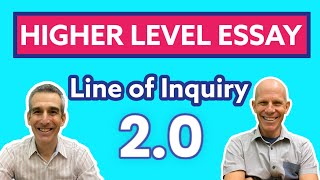
Analysis and Interpretation
The Magic Sentence
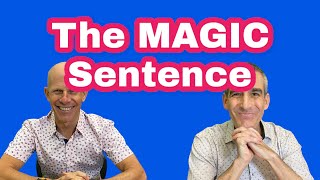
Thesis Workshop
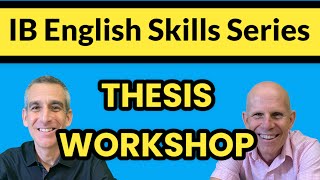
Linking Thesis Statements and Topic Sentences
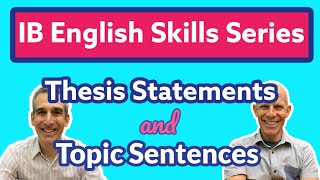
Extending Analysis and Interpretation
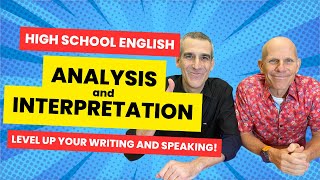
Starting Strong - Introductions
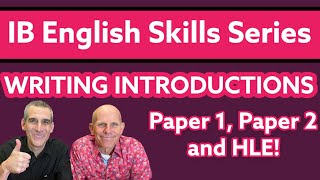
Annotating the Right Way
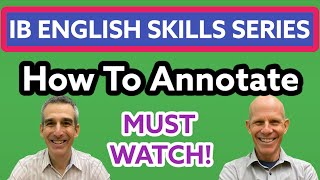
Effective Transitions
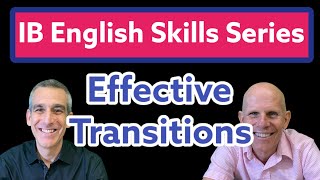
Adding Voice to Analysis
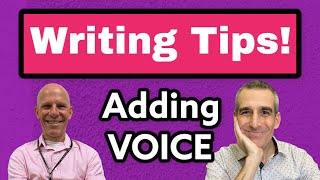
Analyzing Figurative Language
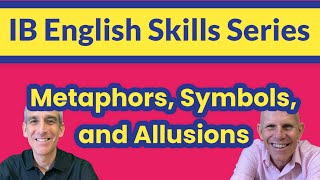
Examiner's Tips and Tricks
Paper 1 - Top Ten Tips
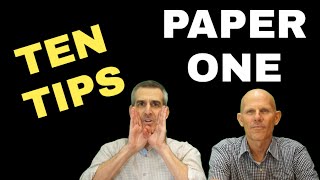
Paper 1 - Exam Checklist
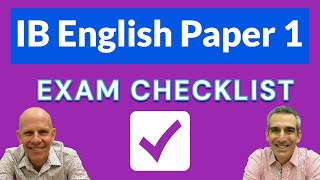
Paper 1 - Pitfalls to Avoid
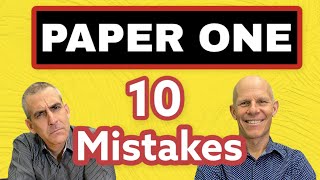
Paper 2 - Top Ten Tips
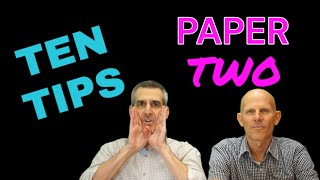
Paper 2 - Exam Checklist
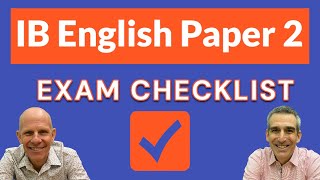
IO - Mistakes to Avoid
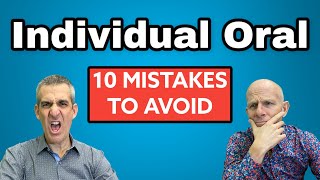
HLE - 10 Mistakes to Avoid
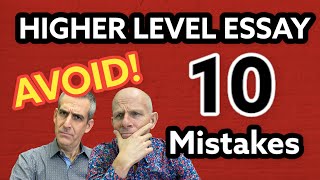
HLE Top Ten Tips

Thank you Revision Village Members
#1 IB Math Resource
Revision Village is ranked the #1 IB Math Resources by IB Students & Teachers.
34% Grade Increase
Revision Village students scored 34% greater than the IB Global Average in their exams (2021).
80% of IB Students
More and more IB students are using Revision Village to prepare for their IB Math Exams.
More IB English Literature HL Resources
Questionbank.
Develop your analytical skills through in-depth study of a variety of texts. No pre-reading required!
Practice Exams
Choose your revision tool! Contains topic quizzes for focused study, Revision Village mock exams covering the whole syllabus, and the revision ladder to precisely target your learning.
Paper solutions, samples, and analytical skills explanations curated by the IB English guys to pump up your scores.
Past Papers
Full worked solutions to all past paper questions, taught by experienced IB instructors.
Top Nav Breadcrumb
- Ask a question

Call for essays: language and literature
Calling all Diploma Programme (DP) alumni! We are looking for graduates and students, like you, to help the IB create a sample set of essays for an upcoming new Study in language and literature courses: the higher level (HL) essay. We need sample HL essays in the following languages: English, Spanish, French, Chinese, Arabic, German, Japanese and Turkish covering 16 different topics!
Show off your writing and set an example for future IB students. Submit a proposal by 30 June 2018 (extended from May) to write an original 1,200-1,500-word essay on a topic you choose within the categories of language and literature, or just Literature (full details below). If your proposal is selected, completed essays will be awarded a USD 50 Amazon gift card.
ESSAY PROPOSAL FORM
What is the HL essay?
The HL essay is a component that requires candidates to write a 1200-1500 word formal essay, following a line of inquiry of their own choice into one of the texts studied. HL Language A: language and literature candidates will have a choice between writing about a non-literary or literary text.
Why was it added to the course?
The development of the HL essay followed the elimination of both written tasks and the written assignment in Studies in language and literature courses. Without those components, there would no longer be written coursework targeting research, editing and citation skills that are of such importance for university courses. The essay also differentiates further between SL and HL, asking HL candidates to demonstrate a deeper understanding of the nature of linguistic or literary study.
What topic should my essay discuss? (choose one from either)
Language and literature
- On a number of columns by one same columnist
- On an advertising campaign
- On the body of work of a photographer
- On a biography
- On a collection of essays
- On a TV series or a film
- On a blog or any other electronic text
- On a series of articles by one same writer
Or Literature
- On a work of poetry
- On a work of fiction
- On a work of non-fiction
- On a work of drama
- On a graphic novel
- On a group of songs by one same author
- On a work of poetry in translation
- On a work in translation
In what language should my essay be written?
We need essays in English, Spanish, French, Chinese, Arabic, German, Japanese and Turkish.
What is the deadline?
Submit your proposal no later than 30 June 2018, though earlier is recommended. We will review proposals on a rolling basis and contact you individually with additional details and a deadline for the final essay.
Why DP graduates?
We need creative and original examples to guide students; we know you have the skills to do this! Show off your writing and set an example for future IB students. Submit a proposal for an original 1,200-1,500-word essay on a topic you choose within either the categories of Language and literature, or just Literature. If your proposal is selected and you submit a completed essay, you may be eligible to receive a USD 50 Amazon gift card .
What concept should I use as a starting point for the essay?
To guide students in their choice of topic, we recommend using the seven central concepts in the course as a starting point for developing a line of inquiry. These concepts are listed here:
The representation of the identity of a particular character or group of characters in the work, or on the way in which the work relates to the identity of the writer
The representation of the culture of a particular place, institution or group of people, or on the way in which the work itself relates to a particular culture.
The representation of the individual or collective creativity, or lack of creativity, within the work, or on the way in which the work represents the creativity of the writer.
Communication
The representation of acts of communication, or failures in communication, in the work, or on the way in which the work itself represents an act of communication.
Transformation
The representation of transformation or transformative acts in the work, or on the way in which the work itself is a transformative act either of other works through intertextual reference to them or of reality by means of a transformative effect on the reader’s identity, relationships, goals, values, and beliefs.
Perspective
The representation of a particular perspective or perspectives within the work, or on the way in which the work represents the writer’s perspective.
Representation
The way in which the work represents different themes, attitudes and concepts, or in the extent to which literature can actually represent reality.
Questions or comments? Write to [email protected] .
About the IB
IB English Paper 1 Explained
Ace your IB English Paper 1 exam with the #1 IB English Resource for 2022 as Voted by IB Students & Teachers
IB English Paper 1 is one of those nerve-wracking experiences that everyone has to endure. It's especially scary because you have no idea what you'll end up writing for your final exam–and your grades depend on it!
The best preparation you can do is be acutely aware of the exam structure and proven strategies that have worked for past IB7 graduates.
If you want to fully wrap your head around the IB English Paper 1 guided analysis, then this quick guide is for you.
Meet your instructor Jackson Huang, Founder of LitLearn. His mission is to make IB English as pain-free as possible with fun, practical lessons. Jackson scored an IB45 and was accepted to Harvard, Amherst, Williams Colleges, and full scholarships to University of Melbourne & Queensland.

What is a Paper 1 exam?
In a Paper 1 exam, you are given two mysterious, unseen texts . Each text is between 1-2 pages in length.
For SL students, you're in luck! Your task is to write a guided analysis on just one of the two texts. Total marks: 20. You have 1 hour and 15 minutes.
For HL students, you're in less luck… Your task is to write two guided analysis essays–one on each of the texts. Total marks: 40. You have 2 hours and 15 minutes.
The mystery text types you'll get for Paper 1 depend on whether you're in IB English Language & Literature or IB English Literature.
For IB English Literature , Paper 1 text types belong to four neat categories (hooray!):
- Fictional prose (e.g. short stories, extracts from novels)
- Non-fiction prose (e.g. scientific articles, extracts)
- Dramatic plays
For IB English Language and Literature , your text types could be… really… anything. Be prepared to be surprised. Typically, at least one of the text types will include some visual element like an image, photo, or cartoon. Here's the (non-exhaustive) list of Lang Lit text types:
- Magazines, blogs, articles and editorials
- Speeches, interview scripts, radio transcripts
- Instruction manuals, brochures
- Comic strips, political cartoons
- … and the list goes on…
What do I write in a guided analysis?
For each Paper 1 text, the IB English Gods pose a short, open-ended question.
This question is called the guiding question , and your essay must focus on answering this guiding question using analysis (we'll explain “analysis” in a second).
Examples of guiding questions:
- How does the writer characterize the protagonist's state of mind?
- How and to what effect do textual and visual elements shape meaning?
- How is narrative perspective used to create meaning and effect?
Even though you're technically allowed to choose your own focus and ignore the default guiding question, it's highly recommended that you go along with what's given… unless you really don't know how to answer it, or you're super confident in your Paper 1 skills.
Now, what are we supposed to do with the guiding question?
Guiding questions always ask you to explain how and why certain language or visual choices are used to build one or more central ideas .
And so the vague instruction "Answer the guiding question" actually translates to something very specific:
Explain how and why the writer uses specific language to build their central idea(s).
This sentence pretty much sums up not just IB English Paper 1, but the gist of analysis and IB English overall.
Writing Deep, Insightful Analysis
If you want to get a high score on Paper 1 (and every IB English assessment in general), you must know how to write deep, insightful analysis.
After helping numerous IB English students at LitLearn, we've found that weak analysis is the #1 reason students struggle in IB English.
Biggest Mistake
The main mistake you're likely making is that your analysis doesn't dig deep enough .
Students make the mistake of only touching the surface-level meaning of the texts. For example, common mistakes include:
- only recounting the plot
- mentioning techniques and ideas without digging into the how and why
- not identifying the most relevant techniques for analysis.
The diagram below shows the difference between surface-level meaning, deep analysis, and deeper analysis.
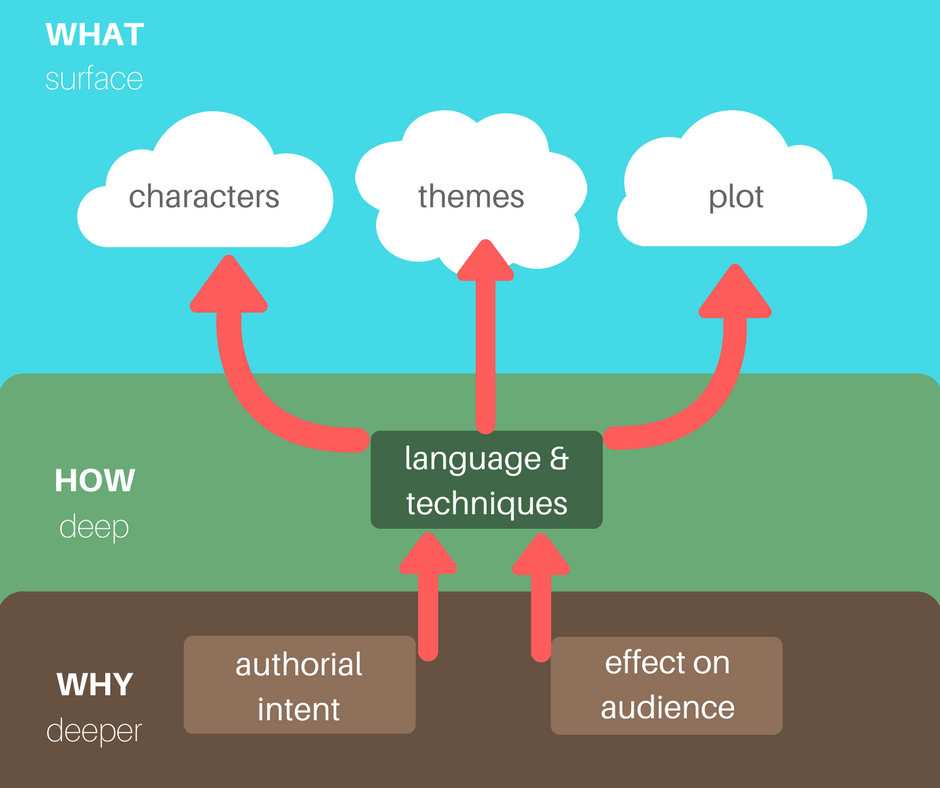
If you're unsure about how to write strong analysis for IB English, or you're not confident in what to look for in your texts, then you should watch this free 7-minute video lesson from Learn Analysis: Analysis Foundations.
Learn Analysis
No sign up or credit card required.
Essential Techniques you need to know
So how do we write strong analysis that scores highly on Criterion B?
First things first, we need to know how to analyze the major literary and visual techniques (visual for Lang Lit), so that we can quickly find and analyze them under exam stress.
If you're cramming for Paper 1, here are the 7 most important techniques and concepts that you should know for IB English Paper 1. They apply to all text types in Lang Lit as well as Literature:
- Tone, atmosphere and mood
- Diction and voice
- Metaphor, simile, and personification
- The 4 main types of imagery
- The 3 types of irony
- Juxtaposition and contrast
- Grammatical and structural techniques
There's a bunch more, but these 7 categories make a great starting point. The first step is to learn their names and definitions, and flashcards are an excellent way to do this.
Of course, memorizing isn't enough. We also need to know the common effects and purposes behind each of these core techniques, so that we can build a mental library of the most common ways to deeply analyze each technique. If you don't study each technique in detail, it's much harder to invent deep analysis on-the-spot during an exam.
We go deep into each of the techniques in Learn Analysis . Here are just a couple of them to get you started.
Level 1 Techniques
Your One Mission in Paper 1
Let's quickly recap what you need to do in a Paper 1.
- You need to discuss the characters, themes and plot of a chosen literary text, OR the visual and stylistic elements (diagrams, headings, titles, images) for a non-literary text.
- You then need to explain how and why these aspects were achieved by the writer or artist.
These two points are helpful as a basis for understanding, but they won't help you get concrete words onto the exam page. What we need now is a practical guide to writing an actual essay:
- Deciding on a good thesis
- Choosing the right points
- Choosing the right structure
A Practical Guide to Writing a Paper 1 essay
An IB English Paper 1 essay boils down to 3 separate parts:
- An introduction paragraph : contains a thesis and an outline of your points
- A body (usually 3 paragraphs) : contains your points
- A conclusion : wraps up the essay
Choosing a thesis
The thesis or subject statement is a single sentence in the introduction of the guided analysis that states how the writer achieves their overall purpose.
This is also the main argument that you are trying to prove in your essay, and it's typically related to the guiding question . The examiner can usually judge the strength of your analytical skills JUST from your subject statement alone, so it needs to be well-written!
Choosing the right essay structure for IB English Paper 1
Every text works best with a specific paragraph structure. Finding this match isn't always easy, but it's also one of the most important things to get right in your Paper 1 guided analysis.
You can organise your essay by:
- ideas or themes
- sections (sequential, e.g. stanza by stanza for poems)
- the ‘Big 5'
- and probably a whole host of other acronyms that English teachers love to invent.
Criterion C for IB English Paper 1 is Organisation . It's worth a whole 5/20 marks, so it's definitely in your best interest to choose the most appropriate structure for your essay.
Pro Tip: I recommend students to stay away from the Big 5 . Sure, it's useful as a memory device to tell you what elements to look for in a text, but it's not a good essay structure for analysis.
Why? Because analysis is about examining the causal interplay between techniques, stylistic choices, audience, tone, and themes. The Big 5 and SPECSLIMS artificially silo these components in your discussion. Heed my advice or pay the price! (notice that rhyme?)
So in my opinion, there are only two types of structure that are most conducive (yep, another new vocab, omnomnom) to getting a 7. Ideas/themes and Sections . Take this as a hot tip and run with it. If your teacher is forcing you to use other structures, then you'll need to know why this is recommended.
We go into much more depth and explain it all inside Learn Analysis.
Pro members only
Writing body paragraphs: Why and How
Once you've chosen the best structure for your essay and decided on a strong thesis as your central argument, the rest of the essay needs to revolve around proving this argument.
How do you prove this subject statement? You do it by looking at individual points. These smaller points support smaller, more specific aspects of the overall thesis.
The idea is that each body paragraph, or point, aims to prove a separate, smaller aspect of the bigger thesis. It's like a jigsaw puzzle : You must piece together smaller, more manageable pieces to build the bigger argument (i.e. the thesis).
In reality, this translates into writing 2, 3 or 4 points, each of which fits snuggly it its own paragraph or multiple paragraphs (depending on the complexity of the point).
In each point, you must include:
- Quotes, references to images, titles, headings, or visual elements. This is the evidence.
- Analysis of language and literary techniques. Use specific quotes from the text and explain how and why they are used by the writer to shape his/her message.
Obviously, this is a quick summary of how to write a high-quality body paragraph. We dive deeper into the specific details of how to structure a body paragraph in the guided analysis.
Planning ahead
Ironically, the most important part of IB English Paper 1 is not the analysis itself (well it is, but not really). The part you have to get right the first time is the plan. Most students do not know how to plan effectively, or get flustered in the exam and don't plan, or don't even try to plan because they think they're above it. Big mistake!
Before you even begin writing, you should plan out your essay in sufficient detail. You will lose track of time, thought and sanity if you do not have a clear road map of every part of your essay before you begin writing.
You can learn how to annotate and plan quickly & efficiently using the flowchart method, which we demonstrate inside Learn Analysis and Paper 1 .
In the Pro lesson below, we go into detail on exactly how to plan a Paper 1 essay effectively and efficiently under exam conditions.
How do I practice for Paper 1?
Most students think that doing a lot of practice papers is the best way to improve in Paper 1. However, there's a much more efficient, targeted method to study for Paper 1.
We work our way up from the smallest, most manageable chunks of analysis to the full Paper 1 exam. It's a good idea to reserve real IB English past papers for 2 months before your final exam so that you don't run out of past papers--they are the best preparation for the final exam. Also, if your analysis skills aren't already strong, doing real past papers is a waste of an excellent exam prep resource.
Questionbank
Quote analysis exercises with exemplar IB7 solutions
Short guided analysis exercises with exemplar IB7 solutions
1 hour practice exams with detailed markschemes or video solutions
IB past paper solutions: Exemplar essay plans and full essay responses
Questionbank
Paper 1 Practice Exams
Past Paper 1 Solutions
Paper 2 Guide
From Struggling to Succeeding in IB English
How IB English students like you have improved their grades with LitLearn Pro... Read the reviews.
IB4 to IB6 in 12 days " LitLearn helped me understand exactly what I was doing wrong and how to improve upon those mistakes. " Read the full review
IB6 to IB7 in 1 week " I ended with a 7 in English Literature HL and I am so happy about that. Thank you Jackson. " Read the full review

IB5 to Perfect 20/20 in 1 week " I managed to be the only person in my IB cohort of 120 students to get a perfect score of 20/20 " Read the full review

IB4 to IB6 in 2 weeks " The lessons are really effective in grabbing my attention and making English more fun to learn. "
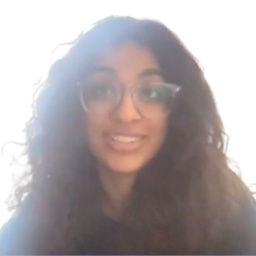
IB4 to IB6 in 1 day " With just day 1 of the course, I improved immediately and overnight when I did a practice essay and improved by 4 marks from my previous grades " Read the full review
IB5 to IB7 " I got 5s since my first year of DP and now my final grade is 7! I can't thank you enough 🙂 LitLearn is truly a lifesaver. "
- Support Sites
English A: Language and Literature Support Site
Hle assessment criteria, criterion a: knowledge, understanding and interpretation.
- To what extent does the essay show knowledge and understanding of the work or body of work?
- To what extent are interpretations drawn from the work or body of work to explore the topic?
- To what extent are interpretations supported by relevant references to the work or body of work?
Criterion B: Analysis and evaluation
- To what extent does the essay show analysis and evaluation of how the author uses stylistic and structural features to construct meaning on the topic?
Criterion C: Coherence, focus and organisation
- To what extent does the essay show coherence, focus and organisation?
Criterion D: Language
- To what extent is the student’s use of vocabulary, tone, syntax, style and terminology accurate, varied and effective?
404 Not found
Language A: language and literature
The language A: language and literature course introduces the critical study and interpretation of written and spoken texts from a wide range of literary forms and non literary text-types. The formal analysis of texts is supplemented by awareness that meaning is not fixed but can change in respect to contexts of production and consumption. This course is available for study in 17 languages.
The course is organized into three areas of exploration and seven central concepts, and focuses on the study of both literary or non-literary texts. Together, the three areas of exploration of the course allow the student to explore the language A in question through its cultural development and use, its media forms and functions, and its literature. Students develop skills of literary and textual analysis, and also the ability to present their ideas effectively. A key aim is the development of critical literacy.
Key features of the curriculum and assessment models
- Available at higher and standard levels
- Higher level study requires a minimum of 240 class hours, while standard level study requires a minimum of 150 class hours
- Students study 6 works at higher level and 4 works at standard level from a representative selection of literary forms, periods and places
- Students study a range of non-literary texts and bodies of work that include a wide variety of text-types
- Students develop the techniques needed for the critical analysis of communication, becoming alert to interactions between text, audience and purpose
- An understanding of how language, culture and context determine the construction of meaning is developed through the exploration of texts, some of which are studied in translation, from a variety of cultures, periods, text-types and literary forms
- Students are assessed through a combination of formal examinations and oral and written coursework and oral activities
- The formal examination comprises two essay papers, one requiring the analysis of unseen non-literary text, and the other a comparative response to a question based on two literary works studied
- Students also perform an oral activity presenting their analysis of a literary work and a non-literary body of work studied
- HL students comply with an additional written coursework requirement which consists of writing a 1200 - 1500 word essay on one of the works or bodies of work studied.
Language A: language and literature subject brief
Subject briefs are short two-page documents providing an outline of the course. Read the standard level (SL) and/or higher level (HL) subject brief below.

We use cookies on this site. By continuing to use this website, you consent to our use of these cookies. Read more about cookies
IBDP English A Literature
Website by Mark Beverley & David White
Updated 8 April 2024
InThinking Subject Sites
Subscription websites for IB teachers & their classes
Find out more
- www.thinkib.net
- IBDP Biology
- IBDP Business Management
- IBDP Chemistry
- IBDP Economics
- IBDP English A: Language & Literature
- IBDP English B
- IBDP Environmental Systems & Societies
- IBDP French B
- IBDP Geography
- IBDP German A: Language & Literature
- IBDP History
- IBDP Maths: Analysis & Approaches
- IBDP Maths: Applications & Interpretation
- IBDP Physics
- IBDP Psychology
- IBDP Spanish A
- IBDP Spanish Ab Initio
- IBDP Spanish B
- IBDP Visual Arts
- IBMYP English Language & Literature
- IBMYP Resources
- IBMYP Spanish Language Acquisition
- IBCareer-related Programme
- IBSchool Leadership
Disclaimer : InThinking subject sites are neither endorsed by nor connected with the International Baccalaureate Organisation.
InThinking Subject Sites for IB Teachers and their Classes
Supporting ib educators.
- Comprehensive help & advice on teaching the IB diploma.
- Written by experts with vast subject knowledge.
- Innovative ideas on ATL & pedagogy.
- Detailed guidance on all aspects of assessment.
Developing great materials
- More than 14 million words across 24 sites.
- Masses of ready-to-go resources for the classroom.
- Dynamic links to current affairs & real world issues.
- Updates every week 52 weeks a year.
Integrating student access
- Give your students direct access to relevant site pages.
- Single student login for all of your school’s subscriptions.
- Create reading, writing, discussion, and quiz tasks.
- Monitor student progress & collate in online gradebook.
Meeting schools' needs
- Global reach with more than 200,000 users worldwide.
- Use our materials to create compelling unit plans.
- Save time & effort which you can reinvest elsewhere.
- Consistently good feedback from subscribers.
For information about pricing, click here
Download brochure
See what users are saying about our Subject Sites:
Find out more about our Student Access feature:
- Higher Level coursework essay: a student guide
- Higher Level Essay
A page and download for HL students...The notes below are designed to give you some guidance with preparing and writing the coursework essay. There are also some links in the text to other areas of this site, which provide further help and support. Do check them out!
To access the entire contents of this site, you need to log in or subscribe to it.
Alternatively, you can request a one month free trial .

IMAGES
VIDEO
COMMENTS
The HL Essay (HLE) is a 1200-1500 word essay about a text studied in the IB English course. For Lang Lit, the work you choose to analyze can be literary or non-literary, but for IB English Literature the text must be literary. The HLE will make up 25% of your final IB English HL grade, and it is graded externally.
In choosing the topic, the student can consult the course's seven central concepts. Any text, texts or work previously studied in class may be selected, with the exception of the texts used for the internal assessment and the works the student plans to use in paper 2. ... The Learner Portfolio and the Higher Level Essay. The learner portfolio ...
The Language A: Literature Higher Level Essay (20% Weighting) Mr. Nigro The nature of the task Students are required to write a formal essay of 1,200-1,500 words, which develops a particular line of ... topic, the student can consult the course's seven central concepts. Any work previously studied in class may be selected, with the exception ...
When you write an essay for a course you are taking, you are being asked not only to create a product (the essay) but, more importantly, to go through a process of thinking more deeply about a question or problem related to the course. By writing about a source or collection of sources, you will have the chance to wrestle with some of the
The HL Essay is a 1200-1500 word formal essay and it is based on a literary work studied as part of the course. You cannot use the same work for the IO or the Paper 2 [1] for this essay. In the IB Language and Literature course [2] , the essay can also be based on a non-literary or collection of non literary text(s).
In the marking of the assessment task, there is equal quantitative value placed on the ideas presented in the essay (10 marks) and the essay's organization and use of language (10 marks). Maximum: 20 marks. [4] The final essay produced for submission needs to be 1200-1500 words in length. Examiners will not read more than 1500 words.
Let us guide you through the entire process. We'll leverage five complete HLE samples and show you how it's done. Start with the Line of inquiry and end with 1500 words you can celebrate! The HLE Planning Guide includes: 100-page course book. 5 sample papers across genres. Line of inquiry guidance. Step-by-step approach to building the HLE.
Higher Level Essay. Whether you are an HL Literature student or HL Lang/Lit student, the HLE requires some special attention. The good thing about this assessment is that it's a processed - rather than on-demand - piece of writing. This means you can take your time, put in the work, and produce something that you love and makes you proud.
In this guide, I have compiled materials to help teach you how to interpret poetry and how to structure your essay/commentary. I've also provided notes on several books typically taught in IB English SL/HL. This should be most of the material you need to study for your IB exam and to study for your in-class exams.
Paper 2: Comparative essay. Paper 2 question bank; Paper 2: applying the concepts; Paper 2: sample responses; Paper 2: a guide for students; Higher Level Essay. Higher Level coursework essay: a student guide; HL essay: the importance of planning; HL Essay: a guide for self/peer review; HL Essay: final checklist; HL essay: sample responses ...
At the time of writing (April 2020), we have published a range of materials on the work of George Monbiot. Put his name into the website's search engine and up they will pop. Just like that. We have also, to date, published two Higher Level (HL) Essays. This is the third HL essay to be published, and it is based on the essays of Monbiot.
External Assessment: Higher Level ESSAY. Weighting - 20% . HL Essay Outline template. HL Essay Rubric. The Nature of the Task ... In choosing the topic, the student can consult the course's seven central concepts. Any text, texts or work previously studied in class may be selected, with the exception of the texts used for the internal ...
IB English Language and Literature Higher Level. Prediction Exams and November 2023 Past Paper Solutions available now! ... Higher Level Essay. Start to Finish - 1. 11 minutes. Start to Finish - 2. 10 minutes. Start to Finish - 3. 11 minutes. Start to Finish - 4. 9 minutes. Start to Finish - 5. 12 minutes. The Line of Inquiry 2.0.
Take a deep dive into best practices for Marking your Language and literature HL essay. Through an in-depth, clear explanation of each marking criterion, overall marks, and best fit you are equipped to practice marking real student samples at your own pace. You will sharpen your marking skills by receiving feedback from real IB examiners on ...
IB English Guys. IB English Guys videos are perfect companions for IB English A: Literature HL students. The videos meticulously outline the key strategies and techniques required to excel in each component of the IB English Lit exams. Find paper solution videos, tips and tricks to succeed, and valuable IO and HL essay planning resources.
We are looking for graduates and students, like you, to help the IB create a sample set of essays for an upcoming new Study in language and literature courses: the higher level (HL) essay. We need sample HL essays in the following languages: English, Spanish, French, Chinese, Arabic, German, Japanese and Turkish covering 16 different topics!
Choosing the right structure. A Practical Guide to Writing a Paper 1 essay. An IB English Paper 1 essay boils down to 3 separate parts: An introduction paragraph: contains a thesis and an outline of your points. A body (usually 3 paragraphs): contains your points. A conclusion: wraps up the essay. Choosing a thesis.
Descriptor. 1. The essay shows little analysis and evaluation of how the author uses stylistic and structural features to construct meaning on the topic. 2. The essay shows some analysis and evaluation of how the author uses stylistic and structural features to construct meaning on the topic. 3. The essay shows adequate analysis and evaluation ...
Q&A For Students: The Higher Level Essay and the Individual Oral; SL and HL: Similarities and Differences; Teaching Visual and Multimodal Texts. A Language for Discussing Film; A Language for Discussing Photography; A Language for Discussing Graphic Novels; IB Core. Extended Essay. Criteria (first exam in 2018) Requirements (first exam in 2018 ...
at SL. In addition, three core elements—the extended essay, theory of knowledge and creativity, activity, service—are compulsory and central to the philosophy of the programme. ... History—higher level. First assessments 2017 ... There are six key concepts that have particular prominence throughout the DP history course: change ...
HL Essay: Exemplar 9 (The World's Wife) This Higher Level (HL) Essay published on this page is good in all commands, but there become obvious opportunities for further improvement. It is written on Carol Die Duffy's collection by poems - popular among IBDP pupils - And World's Wife. The essay has, in general, a good focus, if moderately ...
The course is organized into three areas of exploration and seven central concepts, and focuses on the study of both literary or non-literary texts. ... 1500 word essay on one of the works or bodies of work studied. ... Read the standard level (SL) and/or higher level (HL) subject brief below. Language A: language and literature SL & HL (PDF ...
Assessment. Higher Level Essay. Higher Level coursework essay: a student guide. A page and download for HL students...The notes below are designed to give you some guidance with preparing and writing the coursework essay. There are also some links in the text to other areas of this site, which provide further help and support. Do check them out!